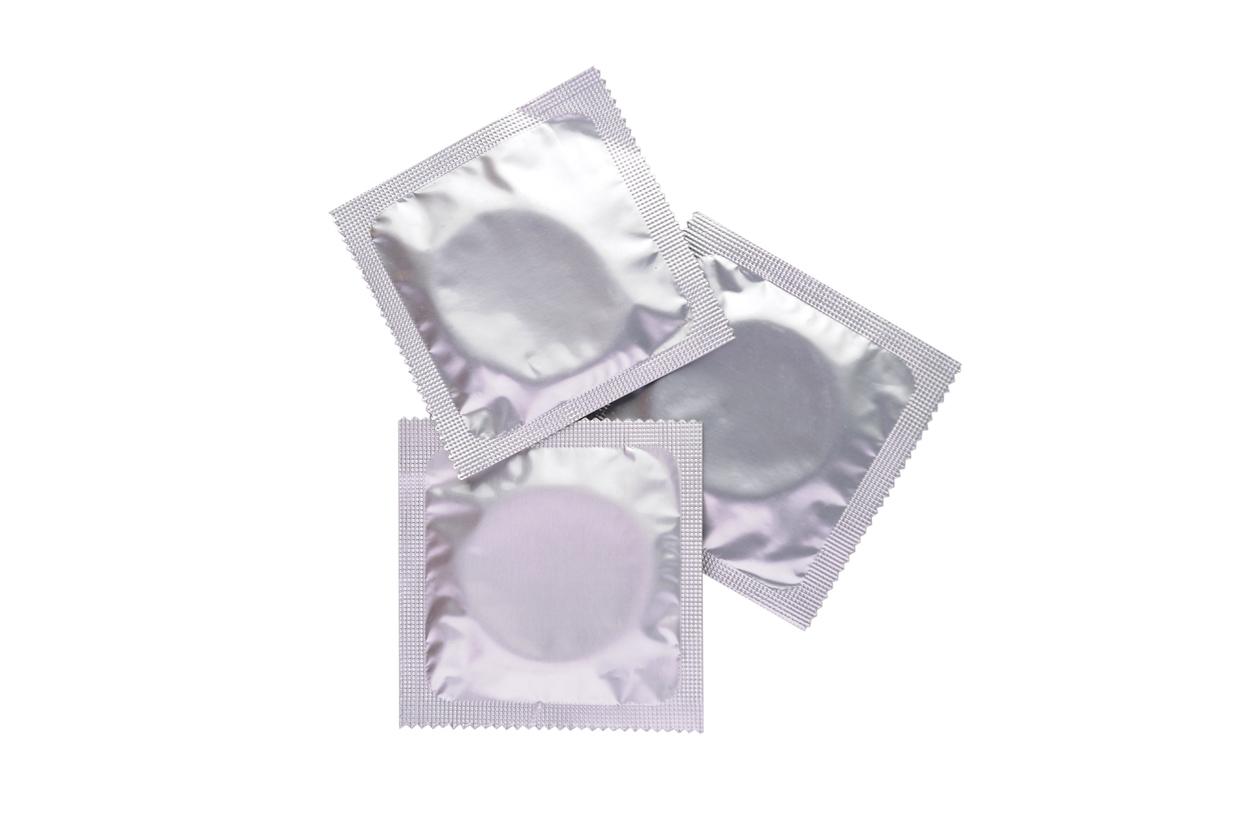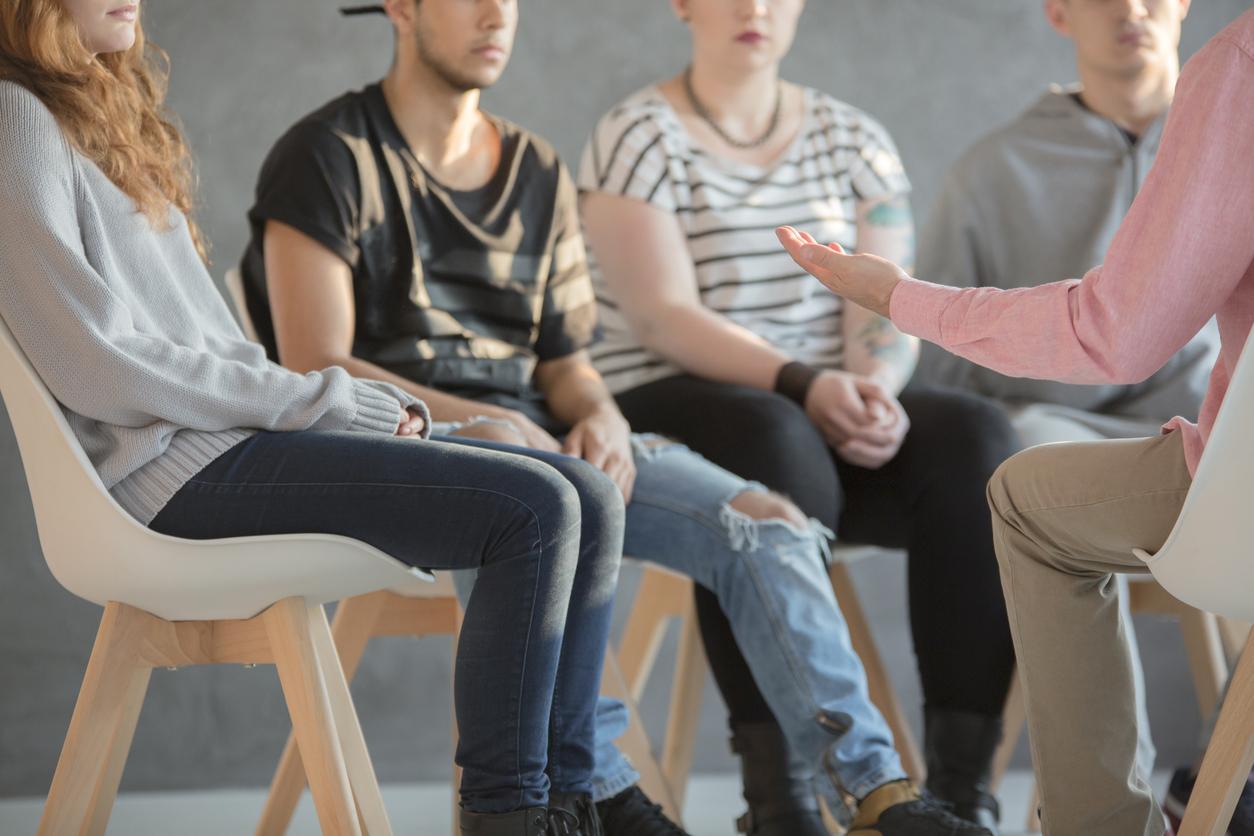Gender, porn, consent, sexual orientation, STIs… What relationship do young people today have with sexuality? As the HEYME survey on the sex life of 18-24 year olds has just been published, we asked sexologist Tiphaine Besnard-Santini the question.

- 3.1% of young people aged between 18 and 24 say they are pansexual, 2.1% do not define their sexual orientation.
- 55.2% regularly consume porn.
- 7 out of 10 young people have a clear idea of what consent is, but 1/3 of respondents say that their consent has been violated during their sexual life. 80% are women.
– The HEYME survey shows that young people refuse to be locked in a “box”. 2.1% of them do not define their sexual orientation, 3.1% declare themselves to be pansexual, 9.6% bisexual… Are young people today more open-minded, more free vis-à-vis you live with sexual injunctions than previous generations?
Tiphaine Besnard-Santini : Yes, that’s what I see with my patients. The youngest patients that I am are around 25 years old, which is early to start sex therapy. My generation did not consult at that age. This generation has a real desire to question things, to question their sexual identity, their desire, much earlier than previous generations. There is a form of open-mindedness and a desire to deconstruct norms. Many more young people define themselves as non-binary or pansexual, which was not the case ten or twenty years ago.
– What is pansexuality? What differentiates it from bisexuality?
It is a relatively recent term, which seems to me more inclusive and more interesting than that of bisexuality, which insists on the binary nature of gender: male and female. Talking about pansexuality is more political, it goes beyond gender. There is the idea that one can desire women and men, but also people genderfluid, non-binary or agenerated. The term pansexuality also includes less standardized and more minority sexual practices, such as BDSM.
– Nearly 2 out of 10 young people say they have already practiced sex with others, 1 out of 10 has already had sexual relations under psychotropic drugs. Why do these sexual practices seem less taboo for the younger generation?
I think it goes hand in hand with questioning gender binary and heteronormative codes. Young people have learned to deconstruct sexual norms. They are therefore more open-minded towards desires, fantasies, practices.
– Where does this questioning of sexual norms come from?
The feminist and queer movements have undeniably had an impact on mentalities. The media have also taken up these questions, as have social networks, but also culture… Today, it has become almost commonplace to see a gay, transgender or non-binary character in a series, which was still of the order of the extraordinary ten or twenty years ago. It has an extremely positive effect in my opinion. We see more and more young women or young queer people claiming their identity on social networks and communicating with their community with kindness. They give power and legitimacy to people who previously did not allow themselves to be empowered.
– 55% of young people surveyed say they consume pornographic content on a regular basis. Does porn still influence the sexual practices of young people?
Yes, it is certain that porn still has an influence on sexuality. But I would rather talk about pornos than porn. Today, there are alternative, feminist, queer forms of pornography. Very mainstream, straight porn with violence still exists, but there is also the possibility of accessing other representations. I also think that even if they have access to this mainstream porn which still features very standardized bodies – thin and shaved for women, muscular for men – and insists on performance, young people are able to make the difference. things. Other representations are there to counterbalance this model.
– 82% of respondents said they were careful or very careful about their partner’s consent. Do you see an influence of the #MeToo movement there?
Absoutely. The fact that the #MeToo movement has been claimed by many actresses, personalities who have a positive impact on young and old, has brought an undeniable awareness of consent, taking into account the desire of the ‘other.
– However, even if the respondents say they have a clear vision of what consent is, a third of them declare that it has already been violated during their sexual life, including 80% of women. How do you explain it?
I think women are also more aware of what consent is, of the fact that they are the only ones in control of their bodies and their desires. On the contrary, there can be a form of surveillance and precaution in this place which can sometimes become a little paralyzing at the level of desire. I can see it in consultation: sometimes, this acuity on the notion of consent can raise questions and be blocking. But it’s a lesser evil!
I also notice that young people are asking themselves a lot more about new forms of relationship. More and more people declare themselves to be polyamorous or in non-exclusive relationships, for example. It also sheds light on the question of consent, on the need to express one’s needs and limits.
– The survey reveals that a quarter of young people do not systematically use condoms when changing partners. Are young people less aware of the danger of sexually transmitted infections (STIs) and in particular HIV or are they less informed?
I also note that this generation is sometimes less vigilant vis-à-vis these questions. Previous generations were strongly marked by the AIDS epidemic, which is no longer the case today. There are now treatments that can suppress the viral load or limit the risk of contamination, such as PrEP, which has undoubtedly caused a form of relaxation in the use of condoms. That said, I don’t have any information on the population surveyed, but I think there is a big difference between young people who have straight sexual practices and those who define themselves as LGBT. I think that the latter are much more informed and vigilant on the issue of HIV and STIs.
– What was the impact of the various confinements on the sexual life of young people?
I have the impression that the younger people were, the more this had a dramatic impact on their sex life, but also on their well-being and on their mental health. The confinements have been a huge cut in their way of life, in their way of making new friendly, romantic or sexual relationships. Suddenly, they couldn’t live like before or meet anyone. There was also a sense of urgency to want to take advantage of his youth, his freedom, his sexuality, his new knowledge, and which could not be satisfied. This has created real unease among young people. Many people have suffered from depression, to have felt very alone and isolated. Others have tried to overcome this problem by moving in very quickly as a couple so as not to experience confinement alone. This may have resulted in breakups, as the relationship was not at that stage.
.

















